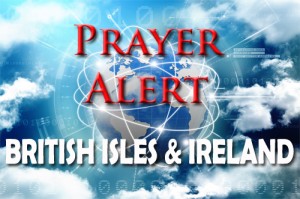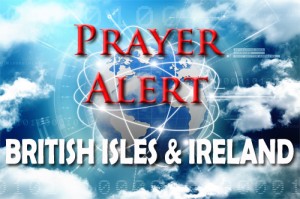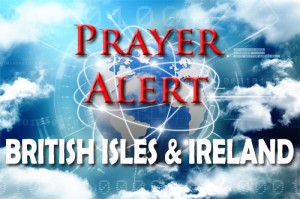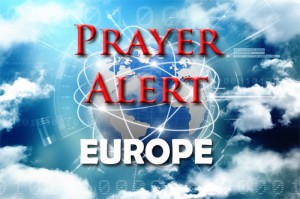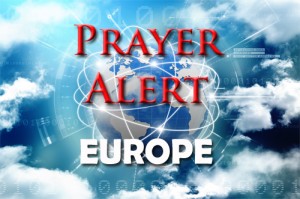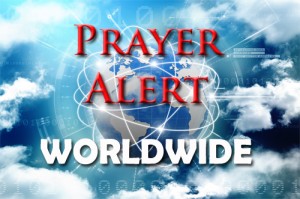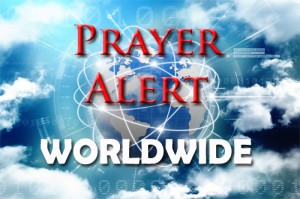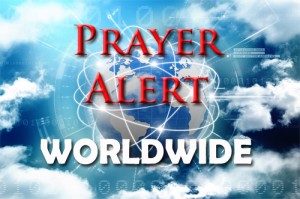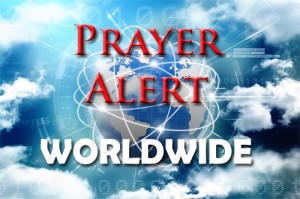
David Fletcher
David Fletcher is Prayer Alert’s Editor.
He is part of a voluntary team who research, proof-read and publish Prayer Alert each week.
If you would like to make a donation towards our running costs, please click here.
In January Ofsted reported that the Meadows Primary School in Bristol was ‘inadequate’ and that ‘racism and bullying have not been dealt with quickly enough.’ This is just one of many incidents where teachers have been found to use bullying techniques and language. Bullying also occurs in school playgrounds. Kind, loving, and funny 12-year-old Matthew was found hanged after being bullied at school. He is just one of many youngsters suffering bullying at school. A BBC File on 4 investigation found that more than 20,000 allegations of abuse by care home workers against the elderly and vulnerable have been made in the last three years. Of the claims 12,000 were of neglect, more than 3,000 were physical abuse, 2,400 were psychological abuse, 400 were sexual abuse. The vast majority related to the care of elderly people in their homes, most aged over 80. See and
On Tuesday Bristol magistrates convicted two Christian preachers of public order offences, many believing they rode roughshod over principles of freedom of speech. They imposed a fine and costs on each of them, totalling £2,016. The case arose over an outreach in Bristol where Michael Overd and Michael Stockwell had preached the Gospel in front of John Wesley’s Chapel. They told the crowd that ‘the thief comes to kill, steal and destroy’, adding that people were on their way to hell because of their view of Christianity. It was decided that the inclusion of homosexuality in a list containing thieves and drunkards was abuse. Michael Phillips, defending, told the court the list of sinners was in 1Cor. 6:9-10. It was the same passage cited in the Appeal Court case of Alison Redmond-Bate, where important principles of free speech were laid down and her conviction set aside. There, as in this case, a hostile crowd gathered and police were called. There, as in this case, the preachers, not the trouble-makers, were wrongly arrested.
‘Sex and relationships’ education is to be made compulsory in all schools in England. All children from the age of four will be taught about safe and healthy relationships. Children will also be taught, at an appropriate age, about sex, but parents will continue to have a right to withdraw their children from such lessons. Until now, sex education has been compulsory only in council-run schools. Now all schools across the system will have to provide age-appropriate lessons on what constitutes healthy relationships, as well as the dangers of sexting, online pornography and sexual harassment. Schools will have flexibility over how they deliver these subjects, to develop integrated approaches sensitive to the local community, and faith schools will continue to teach in accordance with the tenets of their faith.
Anglo-American relations have encompassed many complex dealings through wars and competition for world markets. Since 1940 they have been military allies enjoying a ‘special relationship’ as wartime allies, and NATO partners. However petitions calling for a ban on President Trump’s state visit attracted almost two million signatures, sufficient to trigger a debate in Parliament last week. Petitioners were encouraged by street demonstrations in many cities. The Westminster discussion coincided with further anti-Trump demonstrations in London, Glasgow, Brighton and other cities. This week, in a snub to the BBC’s ‘negative’ reporting on US politics, which he called fake news, President Trump has refused to give BBC interviews. Pray for the free press and the BBC, as they continue to call those in power to account.
As we remember the 500th anniversary of the Reformation, we need to make every effort to overcome the division in the Church that followed the Reformation. In the churches in Germany and Europe there is a growing consciousness that the body of Christ can only reflect Christ and be a powerful and effective witness in society when working in unity. We need to look for our identity as Christians in denominations and the differences between us, but in Christ. Following on from their joint word for 2017, ‘Healing of memories - witnessing to Jesus Christ’, the German Bishops’ Conference and the Protestant Church of Germany have made an open invitation to a central repentance and reconciliation service in the Michaeliskirche in Hildesheim on 11 March. What Christians have caused in suffering and injury to one another in the 500 years of separation will be confessed and mutually forgiven. Unity of the body of Christ also needs alignment with God’s word to stand against the misappropriation of the gospel to support ungodly policies.
Operation World reports that as Europe becomes less religious and more secular, a non-religious worldview or a mixed spirituality dominates many people's belief systems. Christians decline in number, and the rate of decline increases each year. Many who are considered Christian do not practise their faith, and less than 10% of Europeans regularly attend church.’ The French are no exception; they say, ‘I can only depend on myself’ and, ‘I can’t trust others to watch out for me.’ Système D is a very well-known concept in France: it comes from the verb ‘se débrouiller’ which, though it doesn’t have a good English equivalent, means to figure out your way through (or around) an obstacle or a complicated situation. If you are using Système D, you are using your own resources, your own wits, your own strength to get through life. See Also, read more:
‘People knock on doors begging for food,’ said a man who fled north Mosul with family still trapped there. ‘People will start dying of starvation. There are no doctors or food. No flour, no bulgur wheat, no rice, no milk, nothing to eat.’ As fighting continues, thousands of families have already fled Mosul for their lives, and many more are expected to do so. UNHCR anticipate 250,000 displaced who will need shelter, food and water - including distressed children and those requiring urgent medical care. ‘What we're hearing from inside western Mosul right now is deeply concerning,’ said Save the Children’s director in Iraq. Meanwhile, since December, four million letters of hope and love, written by civilians, have been dropped over IS-held parts of Mosul. Volunteers gathered 2,000+ letters, photocopied them and then showered them from a transport plane. See:
It's a volatile neighbourhood with conflicts, terrorism, and food shortages on all sides. With Libya to its north, Sudan to its east, Central African Republic and Cameroon to its south, and Nigeria to its west, Chad continually attracts the masses seeking refuge when trouble occurs across this region. But there is little refuge to be found, only inadequate infrastructure, instability, conflict, immense poverty, notorious governmental corruption and threats of terrorism. The people of Chad have urgent physical needs. But there is an even greater tragedy that affects eternity: there are more unreached people groups in Chad than in any other nation on earth. The good news is that the number of Muslims turning to Christ is steadily growing. Efforts to reach the unreached are seeing fruit! The door in Chad remains miraculously open to the Gospel.
From March to May intercessors will be praying for healing for the 'heart' of South Africa, focusing on reconciliation and deep-rooted pain and animosity harboured there. Since January, intercessors have prayed for the deep-seated emotions harboured against others, stemming from events in the past. In March many will continue to go to God with expectant hearts, asking Him to reveal any form of sin that affects others. Also, from 18 to 20 March, teens and youth leaders will unite in a dynamic programme of talks, worship, multi-media platforms, spiritual-encounter stations, workshops, discussions, counselling, fellowship and fun. The event is called #imagine and aims to see radical change by placing those who will lead in twenty years' time on the right spiritual path now. Three events,with the same content, will take place simultaneously in the Western Cape, Gauteng and the Eastern Cape. We can join the intercessors: see
Cybersex trafficking is a new and devastating form of slavery. It is a rapidly growing problem as internet access increases everywhere. Now, paedophiles worldwide can direct the live sexual abuse of boys and girls, many under ten years old. For a crime, it’s low risk, easy to do, with high potential reward. 54% of victims rescued in International Justice Mission (IJM) cases are between one and twelve years old. Victims can be exploited in any location with a computer and the internet, or just a mobile phone. Philippine authorities are already receiving thousands of referrals a month, like Cassie, who was tricked to move to Manila when she was twelve. She had big dreams, but what she found was a nightmare - being forced to perform sex acts in front of a camera.

